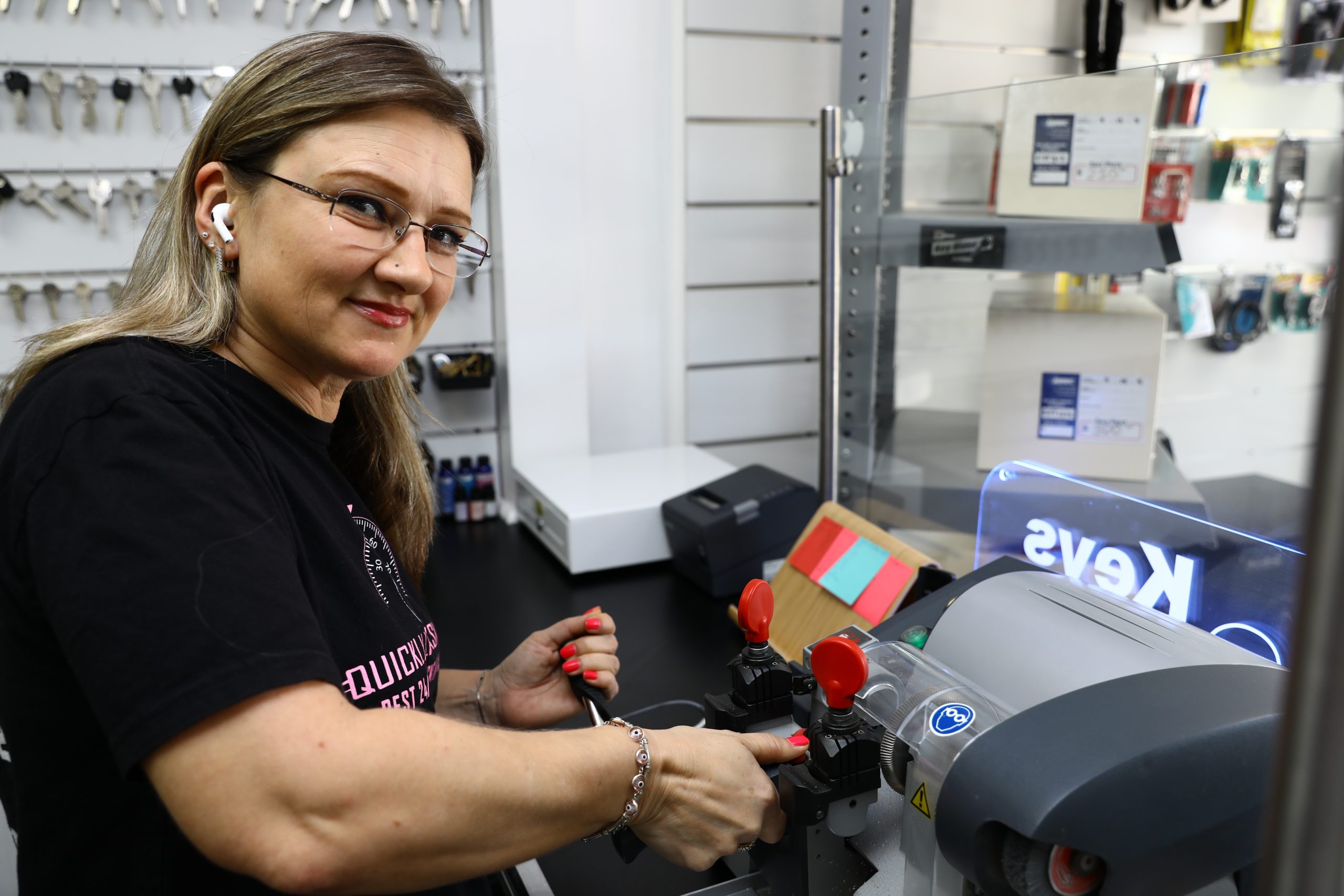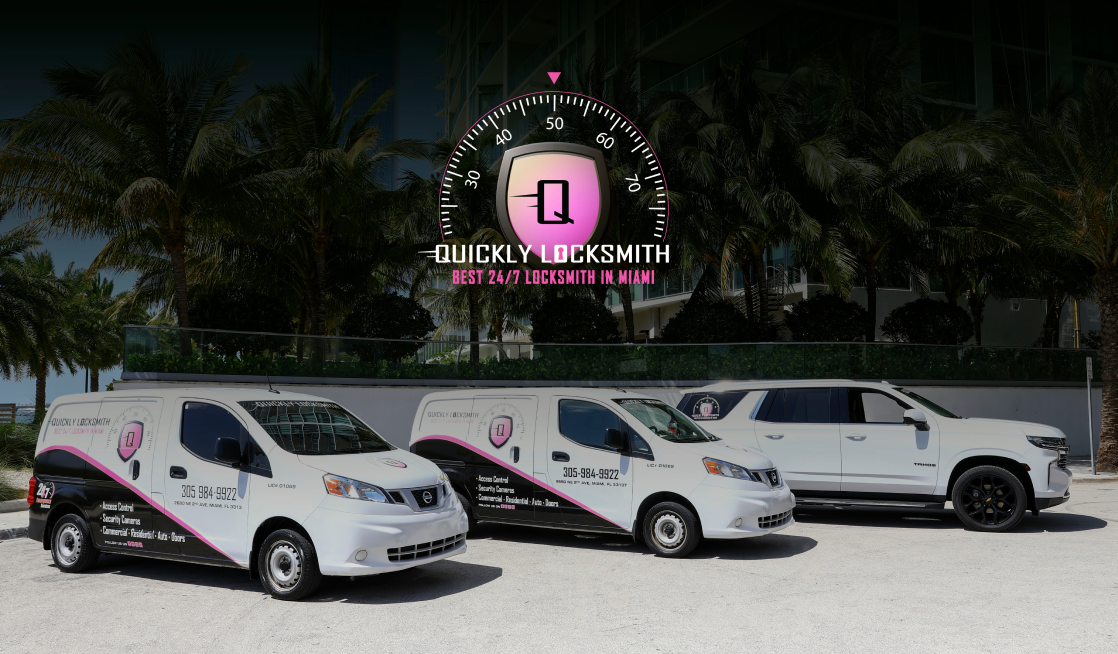
The world of retail is fast-paced and when you’re managing vast amounts of inventory, security becomes a critical consideration. Theft, vandalism, and fraud are just a few of the challenges that retail stores need to take into consideration daily.
An advanced security system ensures that your business, employees, and customers are constantly protected.
In this comprehensive guide, we’ll explore key security system considerations and explain how to choose and implement one in your retail store.
Before we dive into the specifics of how to choose a security system, let’s look at why it’s crucial for retail stores to make security a priority:
Retail stores are susceptible to both external theft by shoplifters and internal theft by employees. A robust security system can deter theft and help identify perpetrators if it does occur.
A good security system helps protect your employees by creating a secure working environment. This is not only important for their well-being but their productivity too. Employees who feel safer are better able to focus on their roles.
Customers want to shop in a secure environment, one where they aren’t worried about their safety and the theft of their personal possessions. A secure store encourages repeat business and builds trust among new and existing customers.
As a retailer, you invest a significant amount of money in inventory. Security systems ensure your assets are better protected against theft and prevent revenue losses, which could mean the end of your thriving retail store.
In the event of accidents or disputes, security footage can serve as valuable evidence, protecting your business from liability claims. Claims can extend into hundreds of thousands of dollars, which could mean the difference between selling more products and closing your store.
Now that you understand the importance of retail store security, let’s explore the steps you should take to choose and implement a worthwhile system.
Before investing in a retail security system, you must assess your specific needs. Each retail store is unique, and what works for one may not work for another. Consider the following factors:
The size and layout of your store determine the number and placement of security devices, including cameras and alarms. Larger stores typically require additional coverage.
The value of your inventory plays a significant role in determining your security requirements. High-value items generally require more sophisticated security measures.
Next, you want to consider the location of your store. Is it in a high-crime area? Understanding the security risks associated with your location can help you personalize your requirements more efficiently. Partnering with local security experts such as Quickly Locksmith Miami can make it easier to understand local risks and security challenges.
Your store’s operating hours will also impact security needs. Stores open late at night may require additional security measures to protect employees and customers during the hours they’re most vulnerable.
Lastly, you need to determine your security budget. While it’s important to invest in security, you must also find a solution that aligns with your financial resources. The more security measures your store requires based on size and inventory, the higher your budget may need to be.
Now that you’ve evaluated your needs, you can start exploring the different solutions you can use to build your retail security system.
Video surveillance is a cornerstone of retail security, and every store should have some form of video surveillance in order to enhance safety. These systems typically include:
Install security cameras strategically to cover key areas such as entrances, exits, cash registers, and high-value product displays. Consider both visible and hidden cameras so that shoplifters cannot be strategic about theft.
These devices store video footage, which can be reviewed at any time or after an incident has occurred. Opt for systems with remote access for real-time monitoring via mobile devices.
For clear and detailed imaging, it’s best to invest in high-resolution cameras. Most of today’s cameras record in HD or 4K, providing you with a much clearer picture. This is ideal for identifying individuals or license plate numbers.
Video analytics software can detect suspicious in-store activity in real-time, including loitering and unauthorized access.
Access control systems control who can enter specific areas of your store, which can keep your inventory and any cash safer. Some systems to consider include:
Employees and authorized personnel can use keycards or biometric scans to gain entry to your store as well as storerooms. Biometric readers are preferred because keycards can be lost or stolen. Biometrics can also be linked to safes and vaults to limit access to high-value items.
Some access control systems allow you to set time-based access restrictions, ensuring that only authorized personnel can enter the store outside of business hours.
Intrusion detection systems alert you to unauthorized store access. Components that can be used for intrusion detection include:
By placing door/window sensors, motion detectors, and glass-break detectors in vulnerable areas, you can detect intrusions outside of store hours.
It’s also highly recommended that you connect sensors to alarm systems. A loud noise can help deter criminals. What’s more, alarms can be connected to an armed response service, which can help apprehend criminals before they can get away.
EAS systems are commonly used to deter shoplifting and prevent inventory loss. Some of the technology to consider includes:
Attaching security tags to high-value items will activate an alarm should someone leave with an item without paying.
To prevent paying customers from activating EAS alarms, you will also need to place deactivation stations at checkout. Cashiers will be able to deactivate or remove security tags before a customer leaves the store.
Protecting your cash registers and POS systems is another essential consideration. You can do this by installing:
Installing cameras near cash registers helps monitor the accuracy of transactions and prevents employee theft.
This software is designed to log transactions, making it easier to detect unusual or fraudulent activity.
Fire and safety systems shouldn’t be overlooked. Along with keeping customers and employees safe, it also prevents inventory loss.
Install smoke detectors and fire alarms to ensure rapid response in case of a fire.
Clearly mark emergency exits and ensure they are easily accessible.
Reinforced doors and windows are ideal for preventing forced entry into your store when it’s closed. It’s also important to ensure that locks and hinges are secure and regularly maintained. Older locks and hinges can be broken more easily, which can impact your insurance payouts and premiums.
Depending on your budgetary allowances, employing security guards is another option to incorporate into your retail security system. Trained security personnel can help monitor your store, deter theft, and respond to security incidents. Loss prevention officers can also be employed to conduct surveillance within the store and apprehend shoplifters before they have a chance to leave.
Modern inventory management systems are equipped with security features that help track and protect retail inventory, which aids with inventory control and security.
Over and above these retail security system options, don’t forget about the basics, such as lighting and security signage, both of which are sound deterrents.
Once you’ve decided on the technology and components you want to add to your security system, the next step is integration. Integration is one of the most crucial steps in this process, as it ensures everything works together seamlessly.
This is the stage where you want to get professionals like Quickly Locksmith Miami involved. While you could use the maintenance team at your location, hiring security experts is a better option. They have a deeper understanding of the technology you plan to use and how it all works together. Installation will be quicker and hassle-free.
During the integration process, you may want to take the following into consideration:
A central monitoring station allows security personnel to oversee all security elements, including video feeds, alarms, and access control. It also ensures any footage can’t be tampered with, which could make court cases and insurance claims incredibly difficult.
Ideally, you want to be able to access your security system remotely via mobile devices or a laptop. Being able to monitor your security when you’re not near your store is invaluable.
Lastly, you want to configure your system to send alerts and notifications in real-time via email or SMS. This way, when security breaches occur, you can take immediate action and limit losses.
Your security system may be efficient from the offset, but without proper maintenance, it could end up letting you down. Here are some tips that will help:
If you want your security system to work as it should, it’s essential for it to be installed by experienced professionals. They will ensure that cameras, sensors, and alarms are correctly placed and configured. What’s more, they can assist with ongoing testing and maintenance.
Schedule regular system testing to identify and address any issues sooner rather than later. This includes, but is not limited to, checking camera angles, testing sensor functionality, and triggering alarm systems. This will allow you to test response times and whether or not you’re getting the alerts you should.
Software updates are easy to put off, but they help keep your security system working correctly. Up-to-date security system software protects your store against vulnerabilities and ensures optimal performance.
Once your security system is in place, you want to focus on educating and training your staff. This way, the system can still function as intended, even if you’re not around to assist.
Start by educating your staff on the proper use of security equipment, including surveillance cameras, alarms, and access control systems. Documenting how this equipment works is also recommended, as it makes it easier to onboard new employees.
Outlining and documenting emergency procedures is also important. Your staff should know exactly what to do in the event of a break-in, fire, or any medical emergency. These procedures should always be kept in a central place.
The final step in this process is to make yourself aware of any legal considerations linked to implementing a security system:
When you implement video surveillance that captures customers and employees, you will need to comply with local and national privacy laws.
Safeguard the data collected by your security system and establish a data retention policy to comply with data protection regulations.
Online stores need to have a strong focus on cybersecurity. Here are some of the most critical tips to apply:
Choosing the right security system for your retail store is a critical investment in the safety of your employees, customers, and business assets. By assessing your specific needs and carefully picking the components of your system, you can enjoy greater peace of mind as a retail store owner.
Quickly Locksmith Miami is a professional Miami-based locksmith that provides a whole host of services and products for retail store owners. Need any further advice or assistance on any of your security needs? Contact us here at Quickly Locksmith Miami at (305) 984-9922.
Words of Trust: Our valued customers share their experiences with our services. Discover how we've earned their trust and satisfaction. Join the community today!


I was in a jam with a broken lock, and these locksmiths came to my rescue! Fast, reliable, and courteous service.
I highly recommend them for any locksmith needs. A+ service!


I needed new locks installed in my home, and this locksmith company exceeded my expectations. Professional, efficient, and reasonably priced. I feel safer now. Thank you!


Locked out of my car in the middle of the night, but these locksmiths arrived quickly and got me back in. Their 24/7 service saved me! Top-notch service with a friendly attitude.

We truly care about your security. Keeping you, your family and your most valuable possessions safe is why we are in business. However, whenever you are looking to hire a residential locksmith service, here are some valuable tips to make the right choice:
Find The Nearest Locksmith To Your Location in Miami FL